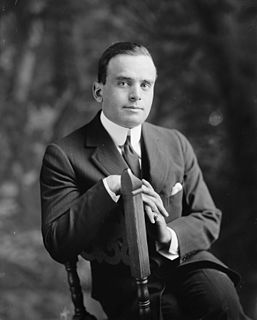A Quote by Charles Maurice de Talleyrand
Society is divided into two classes: the shearers and the shorn. We should always be with the former against the latter.
Related Quotes
The correct relationship between the higher and lower classes, the appropriate mutual interaction between the two is, as such, the true underlying support on which the improvement of the human species rests. The higher classes constitute the mind of the single large whole of humanity; the lower classes constitute its limbs; the former are the thinking and designing [ Entwerfende ] part, the latter the executive part.
I am convinced that those societies (such as the Native American peoples) which live without government enjoy in their general mass an infinitely greater degree of happiness than those who live under the European governments. Among the former, public opinion is in the place of law, & restrains morals as powerfully as laws ever did anywhere. Among the latter, under pretence of governing they have divided their nations into two classes, wolves & sheep. I do not exaggerate.
If mythic violence is lawmaking, divine violence is law-?destroying; if the former sets boundaries, the latter boundlessly destroys them; if mythic violence brings at once guilt and retribution, divine power only expiates; if the former threatens, the latter strikes; if the former is bloody, the latter is lethal without spilling blood
Every man and woman in society has one big duty. That is, to take care of his or her own self. This is a social duty. For, fortunately, the matter stands so that the duty of making the best of one's self individually is not a separate thing from the duty of filling one's place in society, but the two are one, and the latter is accomplished when the former is done
It does not follow from the separation of planning and doing in the analysis of work that the planner and the doer should be two different people. It does not follow that the industrial world should be divided into two classes of people: a few who decide what is to be done, design the job, set the pace, rhythm and motions, and order others about; and the many who do what and as they are told.







































